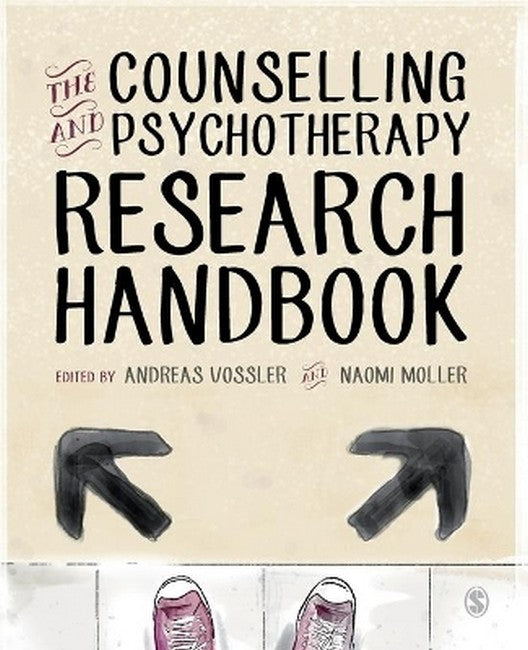Introduction Setting the scene - Why research matters - Andreas Vossler, Naomi Moller & Mick Cooper Attitudes to and perceptions of research - Andreas Vossler & Naomi Moller Beginning the research journey Choosing a research question - Elaine Kasket How to read and understand research - Elena Gil-Rodiguez Doing a literature review - Meg Barker Introduction to research methodology - Ladislav Timulak Planning your research: Design, method and sample - Terry Hanley, Clodagh Jordan & Kasia Wilk Ethical considerations - Tim Bond Writing a research proposal - Mark Donati Methodologies and methods for doing research Quantitative methods - Elspeth Twigg How to use t-tests to explore pre-post change - Elspeth Twigg & Paul Redford Qualitative methods - Linda Finlay How to use thematic analysis with interview data - Virginia Braun, Victoria Clarke & Nicola Rance Case studies methodologies - Julia McLeod, Mhairi Thurston & John McLeod How to use case study methodology with single client therapy data - Mhairi Thurston, Julia McLeod & John McLeod Completing the research journey Dissemination of research - Andrew Reeves Student top tips - Brian Sreenan, Harriet Smith & Charles Frost Next steps - Building on and using research in training and practice - Peter Stratton, Naomi Moller & Andreas Vossler
Request Academic Copy
Please copy the ISBN for submitting review copy form
Description
The editors of this book have assembled contributions from key authors who explain comprehensively the rationales for research and methods of conducting it, in accessible language that invites readers to overcome anxieties and doubts about using research. Vossler and Moller's Handbook deserves to become the authoritative resource for practitioners and students of counselling and psychotherapy. -- Colin Feltham I think this is a most impressive text. The language employed is plain, accessible and inclusive and the editors have skilfully produced a coherent narrative without losing the distinctive voices of individual contributors. This will without doubt become required reading for anyone - novice or seasoned practitioner - who seeks a wise companion on their own research journey. -- Professor Simon du Plock In an era of "big data" and evidence based practice, this book provides students and practitioners with an engaging and informative way into the world of counselling and psychotherapy research. It is essential reading for those starting to make sense of and engage in empirical study. -- Andy Hill There have been plenty of publications on research as well as on training in counselling and psychotherapy. This wonderful handbook brings them together for the first time. It is a landmark publication: a comprehensive overview and a didactically excellent journey through the research process guided by experienced, well-known researchers. Research questions and planning; designs; methodologies and methods; organization and dissemination are discussed. It is ambitious but provides easily accessible expertise for students, practitioners and young researchers. It will have a large international impact on counselling and psychotherapy training and on the scientist-practitioner self concept of counsellors and psychotherapists. -- Professor Frank Nestmann In true 'handbook' style, this engaging, comprehensive and motivational publication can be used as an exemplary reference tool throughout the research process. I would definitely recommend it to students, educators and researchers alike. Although it is intended primarily for students, there is much in its content for trainers and educators too. -- Charlie Jackson, BACP Research Officer This book left me feeling excited and enthusiastic about conducting research - something I have not felt previously. It is a must for all students and practitioners. Whether you have no knowledge at all, or limited experience in research, this book fills the gap. -- Jo Sansby, counsellor, psychotherapist and supervisor, Central Manchester University Hospitals In this research handbook, attempts are made to enable the reader to overcome 'internal' hurdles to research...The reader is led through some very practical stages, from deciding on a research topic, to focusing down the research question, to deciding on the method...to conducting a literature review and data analysis, to becoming aware of ethical issues, to writing-up and dissemination. A strength of the book is that it is written by both relatively new, and many seasoned researchers- each drawing on their past and current experience. This significantly adds 'texture' to the relevance and accessibility of the material...this is now a book I will be highly recommending that all of my research students have in their personal libraries, to refer to constantly throughout their research process. -- Peter Gubi, University of Chester

